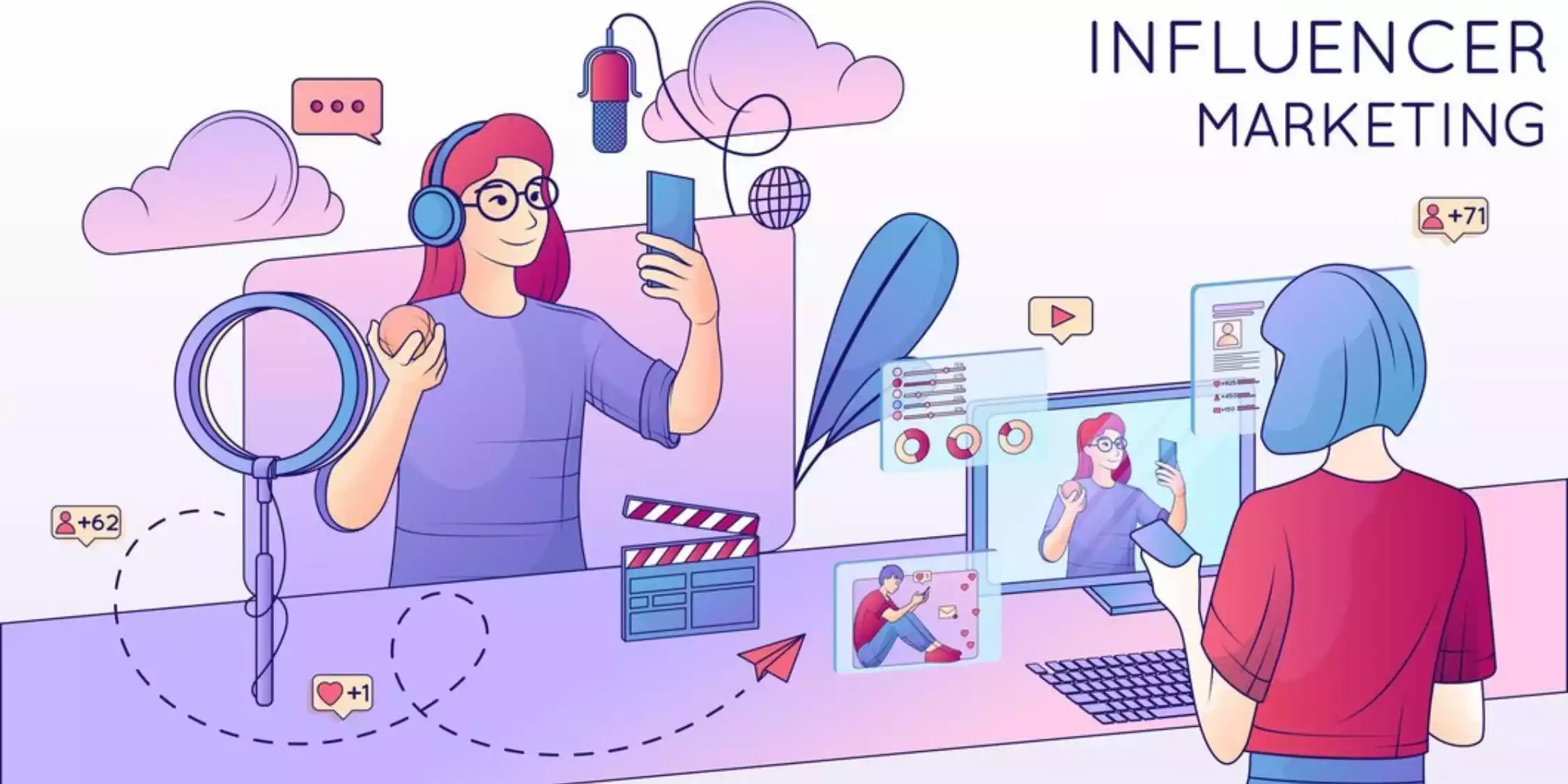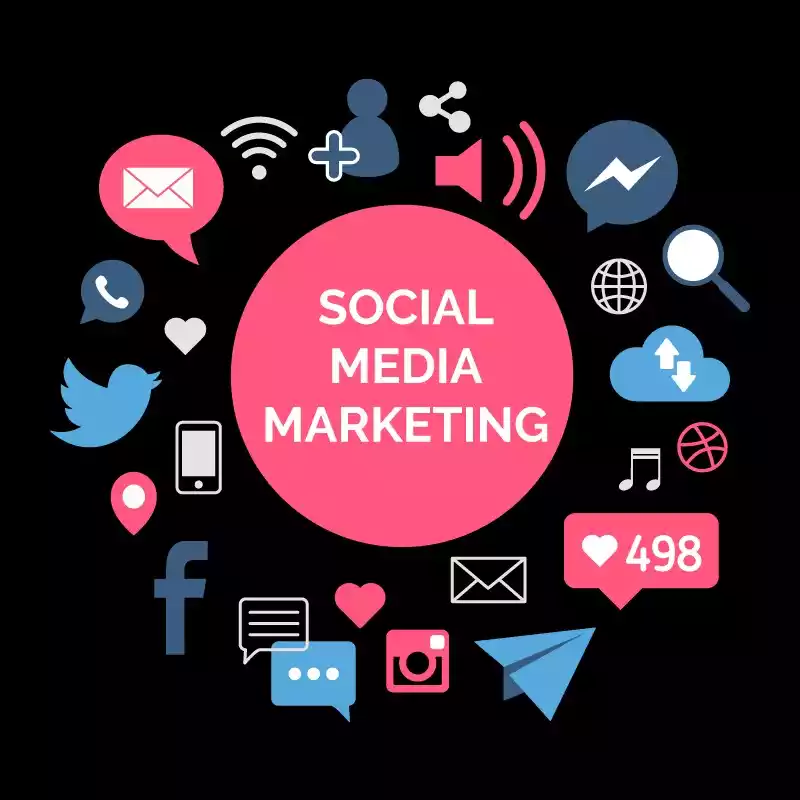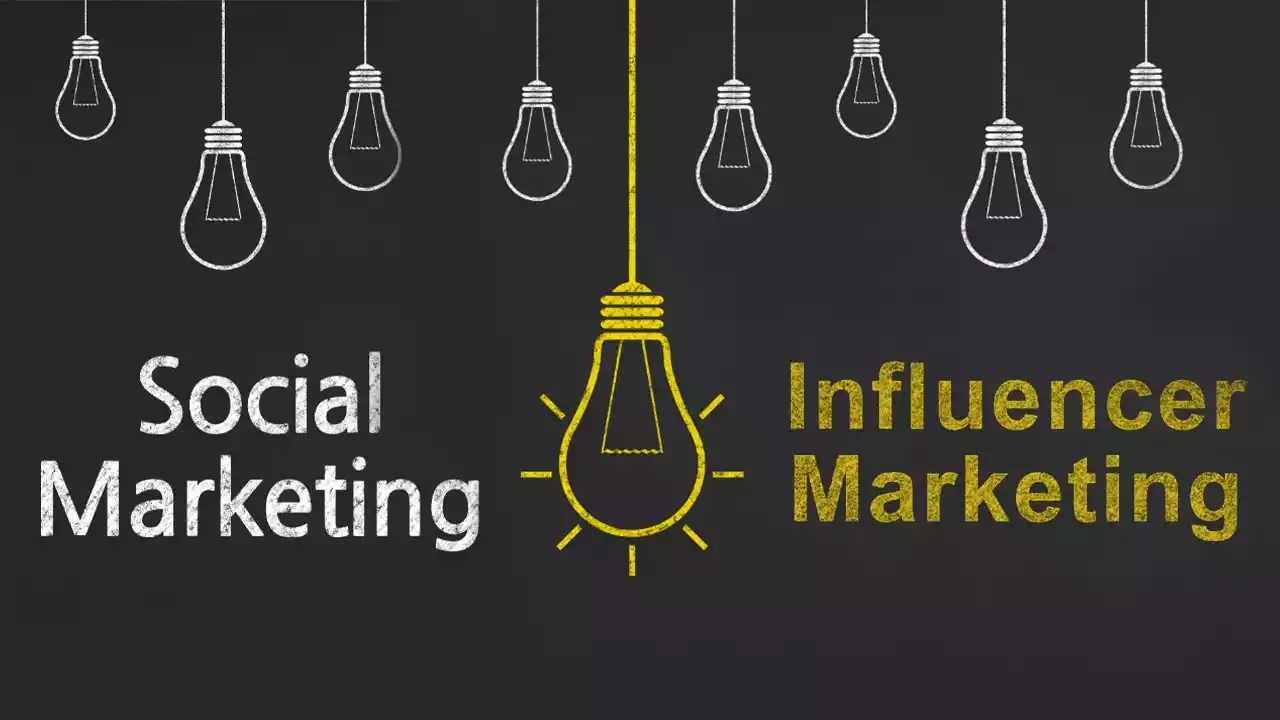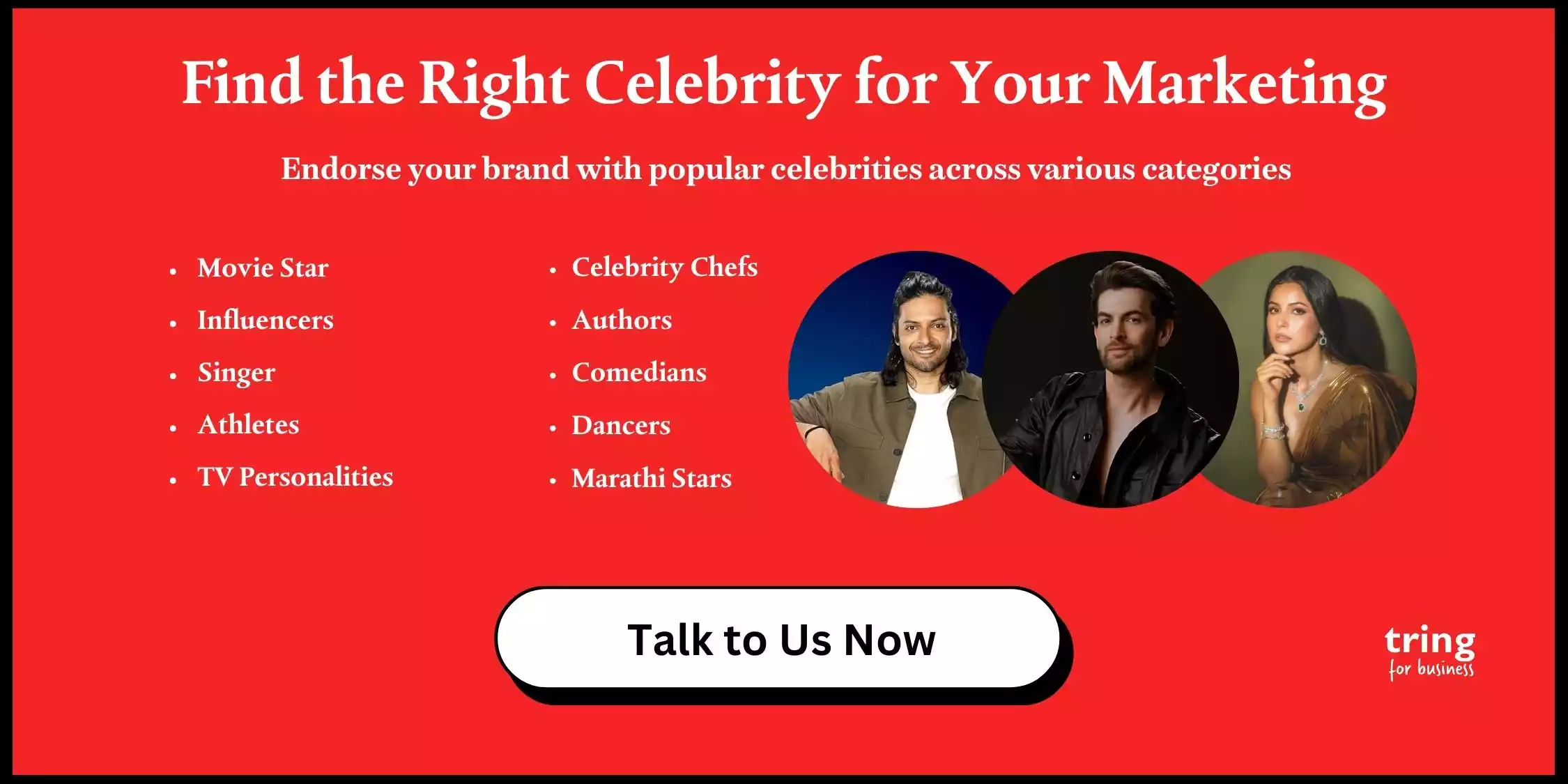Understanding Influencer Marketing
In the world of digital marketing, understanding the dynamics of influencer marketing is crucial. It separates from traditional social media marketing by leveraging the personal connections and trust that influencers have built with their audience. This strategy taps into existing communities, harnessing the influencers' credibility to enhance a brand's reach, engagement, and conversion rates. To grasp influencer marketing vs. social media marketing, we must first understand what influencer marketing is.
![Understanding Influencer Marketing Understanding Influencer Marketing]() 1. Influencer Marketing for Brand Growth
1. Influencer Marketing for Brand Growth
Influencer marketing stands out as a unique strategy within the broader scope of digital marketing. It centres on utilising key personalities, known as influencers, who have established substantial, engaged communities on social media platforms. These individuals have garnered their followers' trust through consistent, genuine content, making their recommendations significantly impactful.
Unlike traditional forms of advertising, where brands directly communicate their messages, influencer marketing involves a more personal approach. It focuses on the influencer conveying the brand's message, ensuring authenticity and a personal touch that resonates with the audience.
2. Driving Engagement and Expanding Reach
One of the standout benefits of influencer marketing is its profound ability to drive audience engagement. Influencers excel at crafting content that speaks directly to the interests and needs of their followers, fostering a level of engagement that standard marketing campaigns often struggle to achieve. This innate capability to generate high levels of interaction presents a golden opportunity for brands to increase their visibility and reach within specific markets or the general consumer base.
3. Building Trust Through Authentic Endorsements
At its core, influencer marketing thrives on the trust and authenticity woven into the influencer-audience relationship. When influencers genuinely believe in the products or services they promote, their endorsements carry a sense of authenticity that can significantly influence their followers' perceptions and attitudes towards the brand. This authentic connection is something that conventional social media marketing campaigns cannot easily replicate, setting influencer marketing apart in its ability to build solid brand trust among potential customers.
4. Accessing Niche Markets
Influencer marketing has the rare advantage of effectively accessing specific niche audiences. Many influencers cater to specialised segments, possessing a deep understanding of their followers' preferences and interests. Brands seeking to target these particular groups find influencer marketing an invaluable tool, enabling them to gain access to these communities through strategic partnerships with relevant influencers.
5. Boosting Conversions
The ultimate goal of any marketing strategy is to drive action, and influencer marketing is no exception. Through the trust and engagement that influencers cultivate with their audience, they can effectively persuade their followers to take desired actions, be it making a purchase, subscribing to a service, or engaging with a brand's social platform. This capability to not only attract but also convert potential customers into loyal ones highlights the effectiveness of influencer marketing.
Diverse Influencer Categories for Business Collaborations
Businesses aiming to enhance their marketing strategy through influencer partnerships have a range of options. From celebrated personalities to niche content creators, each type of influencer brings a unique value to promotional efforts. Let's explore the different categories of influencers available for collaboration.
![Diverse Influencer Categories for Business Collaborations Diverse Influencer Categories for Business Collaborations]() 1. Celebrity Endorsers
1. Celebrity Endorsers
At the top of the influencer hierarchy are the celebrity endorsers. These individuals are easily recognised faces from various fields such as cinema, sports, or music. They have extensive social media followings, often reaching into the millions, making them powerful voices in the digital realm. Partnering with a celebrity influencer can significantly increase brand visibility due to their widespread popularity.
2. Macro-Influencers
Next in the influencer spectrum are macro-influencers. These social media personalities have successfully gained a sizeable audience, typically exceeding 100,000 followers. Their broad reach makes them ideal for campaigns looking to target a larger demographic. Macro-influencers often have a well-established online presence and are recognised for their content in specific niches, such as fashion, lifestyle, or technology.
3. Micro-Influencers
Micro-influencers, although they may have a smaller audience base—ranging from 10,000 to 100,000 followers—offer a unique advantage. They are known for having a highly engaged community. The smaller scale of their following allows for more personalised and interactive communication, fostering a sense of trust and loyalty among their audience. Micro-influencers are considered specialists in their respective fields and are particularly effective for targeting niche markets with a more tailored approach.
Understanding the Essence of Social Media Marketing
Social media marketing (SMM) serves as a fundamental part of digital marketing, using platforms like Facebook, X (formerly Twitter), and Instagram to enhance a brand's online presence and engage directly with its audience. This exploration of social media marketing's key elements highlights its importance in understanding influencer marketing vs. social media marketing.
![Social Media Marketing Social Media Marketing]() 1. Building Brand Awareness
1. Building Brand Awareness
A key objective of social media marketing is to enhance brand visibility. Brands utilise social media channels to introduce themselves to a broader audience. Through compelling content that ranges from informative posts to interactive discussions, companies can effectively spark interest and recognition among potential customers.
2. Driving Website Traffic
Social media serves as an efficient channel for directing users to a business's website, playing a pivotal role in digital marketing strategies. Businesses encourage their followers to deepen their engagement by creating appealing postings that link back to the company's website, whether it's through reading a blog post, browsing a product catalogue, or taking advantage of a special deal.
3. Enhancing Lead Generation and Conversions
The ability of social media platforms to assist with lead generation and conversion is unmatched. Targeted advertising and properly created calls to action (CTAs) included in posts attract the audience to make a purchase choice, accelerating the sales process.
4. The Crucial Role of Social Media Managers
Social media managers are at the heart of executing effective SMM strategies. Their expertise lies in creating and sharing content that resonates with the target audience, fostering a community around the brand, and analysing the performance of social media campaigns to refine future tactics. They are adept at navigating the fast-paced changes in social media trends, ensuring that the brand remains relevant and engaged with its audience.
Influencer Marketing vs. Social media Marketing - The Unique Roles
Let’s explore the complex landscape of influencer marketing vs. social media marketing. This analysis can help businesses make informed choices for their marketing strategies. Both methods provide unique advantages, and understanding their key differences is essential.
![Influencer Marketing vs. Social media Marketing Influencer Marketing vs. Social media Marketing]() 1. Who’s Behind the Content Creation?
1. Who’s Behind the Content Creation?
Understanding who crafts the messages your audience sees is crucial in distinguishing between these two strategies.
-
Brands Lead the Way in Social Media Marketing
In social media marketing, brands take the frontline. They meticulously plan what they wish to communicate, the style of their message, and the timing of their broadcasts to the digital world. It's as if they are the captain steering their ship across the vast seas of social media, navigating through calm and stormy weather alike.
-
Influencers Offer a Personalised Approach
Conversely, influencer marketing flips the script by letting influencers—individuals who have garnered a significant following and trust—take control. These influencers infuse the brand’s vision with their unique voice and personality. This process turns standard promotions into intimate and authentic conversations with their audience, making each shared piece resonate more deeply with followers.
2. The Source of Persuasive Power
The origin of the compelling force that convinces audiences also differs significantly between the two methods.
-
Brands as the Protagonists
In social media marketing, it's all about the brand's voice. The brand positions itself as the protagonist in its narrative, aiming to build a direct connection and trustworthiness with its audience. It's essentially the brand putting its best foot forward, showcasing its values, benefits, and why it stands out in the crowded marketplace.
-
The Credibility of Influencers
In the influencer marketing sphere, the scenario changes. Brands leverage the trust and credibility influencers have carefully built with their followers. This pre-existing trust acts as a bridge for brands to reach potential customers more effectively, making the endorsement by the influencer a powerful tool for gaining the audience's interest.
3. Engaging with the Audience: The Different Approaches
The ways in which brands communicate with their audiences can also differ across the two marketing tactics.
-
Direct Interaction Through Social Media Marketing
With social media marketing, brands have a direct channel to engage with their customers. This strategy allows for real-time conversations, immediate feedback, and the nurturing of a vibrant community on their own social platforms. It's similar to having an open house where customers can drop by anytime to chat, give opinions, or just catch up.
-
Influencers: The Conductor for Conversations
In contrast, influencer marketing uses influencers as mediators. They become the spokesperson for the brand, introducing it to their followers as if recommending it to a friend. The hope is that through the influencer's genuine review about the brand, a spark of interest is ignited, leading to a more authentic and organic connection between the brand and potential customers.
When examining influencer marketing vs. social media marketing, several key aspects stand out: the creator of the content, the source of trust and persuasion, and the method of audience engagement. Recognising these distinctions allows businesses to tailor their marketing efforts more precisely, ensuring they reach their audience in the most impactful manner.
Maximise Your Reach with Influencers via Our Platform
You can easily connect with celebrities and influencers through our platform to promote your business. By partnering with well-known figures, you can increase your brand's visibility and reach a larger audience. Influencers have built trust with their followers, making their recommendations powerful tools for attracting new customers.
Our platform allows you to find the right influencers who align with your brand values. Whether you want them to create engaging content or promote your products directly, you can collaborate in a way that feels authentic. This connection not only boosts your marketing efforts but also helps build credibility for your brand in the eyes of potential customers.
![Let Us Connect You to Your Ideal Brand Ambassador Let Us Connect You to Your Ideal Brand Ambassador]()
![birthday occasion]() Birthday Gifts
Birthday Gifts
![anniversary occasion]() Anniversary Gifts
Anniversary Gifts
![women]() Women
Women
![men]() Men
Men
![Couples]() Couples
Couples
![Couples]() Wedding Gifts
Wedding Gifts

 Birthday Gifts
Birthday Gifts
 Women
Women
 Men
Men
 Anniversary Gifts
Anniversary Gifts
 Wedding Gifts
Wedding Gifts
 1. Influencer Marketing for Brand Growth
1. Influencer Marketing for Brand Growth 1. Celebrity Endorsers
1. Celebrity Endorsers 1. Building Brand Awareness
1. Building Brand Awareness 1. Who’s Behind the Content Creation?
1. Who’s Behind the Content Creation?
 We now support international payments
We now support international payments
